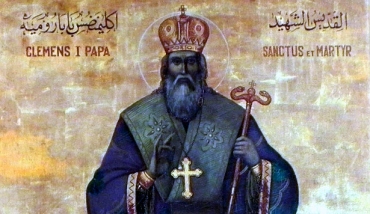
Last April, I gave a paper in a conference at Durham University. The conference was about “the muted voices” of early Christianity, and these voices included the catholic epistles in the NT as well as the apostolic fathers. The organisers arranged seminars running in parallel and you choose what you would like to attend. My seminar was basically about orthodoxy and heresy in earliest Christianity: Barnabas and 1 Clement as a case study. Before I started reading I noticed that all NT professors left to attend the seminar running in parallel on the 1Timothy and 2Peter except one professor who didn’t really appreciate what I said since I was arguing for the validity of Walter Bauer’s Orthodoxy and Heresy.
The reason why those NT scholars left was obvious: Barnabas and 1 Clement are not part of the canon, then they are not interesting. It is as simple as that even if they didn’t say so explicitly. They are not in the canon, at least now… this makes them, to put it politely, less interesting or perhaps less significant.
It is this hypothetical wall that separates two domains: NT scholarship and patristics: if something is labelled “patristic” then it automatically relies on at least a text or two in the NT. The impact of this perspective appears more on my generation of young researchers who lack interest in patristic texts.
But here’s a fact: 1Clement was definitely earlier than most of the catholic epistles while Barnabas is the earliest complete Christian work coming from Alexandria, if not as early as 1Clement, as modern scholarship tend to think (around emperor Nerva’s time).
And here’s another fact: these texts know nothing of our “canonical” Gospels and they preserve a rich number of parallels with the Gospels like the ethical maxims of 1Clem13.2 which show no redactional hands as in the Gospels. Or 1Clem. 46 as well. Same for Barnabas which has a great deal of thoughts that resonate with the Gospel of John.
The first fact mentioned before makes the “fathers” contemporaneous to the Gospels, not posterior. The second makes the apostolic fathers the best witnesses to the development of the church that produced these Gospels.
I am focusing on these two examples in particular because they were part of the canon at some point (well into the fourth century actually!) and they have been considered “orthodox” by the dominant Catholic church from the second century onwards (actually 1Clement was the criterion of Orthodoxy in Asia Minor and Alexandria!). This means that it is not a problem of orthodoxy and heresy that made them “posterior and less interesting” …
So, if it is neither historical precedence nor “orthodoxy,” what made the fathers fathers and the NT NT? After three years of research, it appears to me that we do not have the answer.
Recently, I have been reading carefully through the fourth book of Tertullian against Marcion (Adversus Marcionem). Tertullian was a bit cheeky but interesting: he put two major criteria to evaluate the authenticity of a text: its apostolicity and its antiquity. If it is older and composed by an apostle then it ticks enough boxes to be appreciated. Of course he claimed that Marcion’s Evangelion lacked both. But what about “our book:” Luke? Tertullian seemed to have no solid information about Luke or his book but he accepted the idea that it was composed by Luke the companion of Paul. Now this is the problem: Luke was not an apostle! it is even worse for Luke since he – imprudently – attached himself to another guy who was not appointed by Jesus as the rest (Paul).
So, he called Luke (and Mark) an apostolic father… because he was not an apostle like Matthew and John.
So, was Tertullian right or wrong? (regardless of the historicity of these gospels, if you got my point).
What should we make of Luke-Acts and Mark then?

Leave a comment